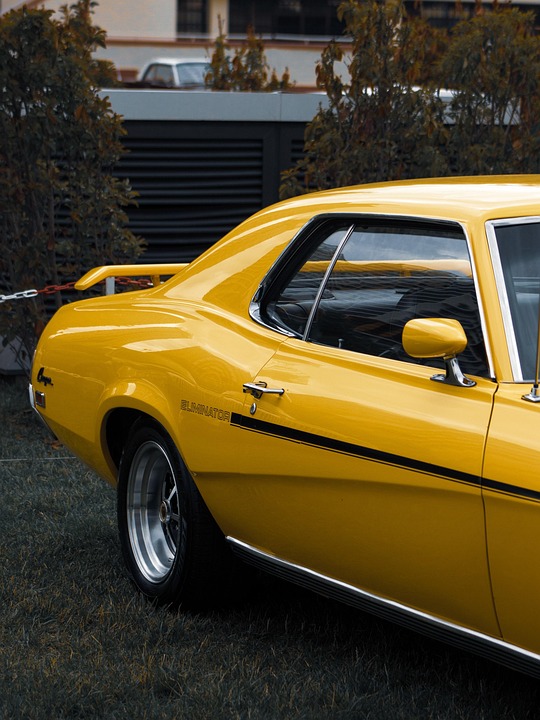The Pros and Cons of Buying a Certified Pre-Owned Vehicle
If you’re in the market for a new car but want to avoid the steep depreciation that comes with new vehicles, a Certified Pre-Owned (CPO) vehicle might be the way to go. With the rising costs of new cars, more buyers are turning their attention to CPO options. While these vehicles can be an excellent choice, they come with both advantages and disadvantages. In this article, we’ll explore the pros and cons of buying a certified pre-owned vehicle to help you navigate your car-buying journey.
What is a Certified Pre-Owned Vehicle?
Before diving into the pros and cons, it’s essential to understand what makes a vehicle certified pre-owned. CPO vehicles are typically late-model used cars that have undergone rigorous inspections and come with extended warranties, differentiating them from regular used cars. Manufacturers often certify vehicles to assure buyers of their quality and reliability. These certifications vary by manufacturer but usually include a comprehensive vehicle inspection, a limited warranty, and sometimes additional perks like roadside assistance or special financing rates.
The Pros of Buying a Certified Pre-Owned Vehicle
1. Thorough Inspections and Reconditioning
One significant advantage of CPO vehicles is that they undergo extensive inspections to ensure they meet specific standards. This process often includes checks on the engine, transmission, brakes, tires, and essential vehicle systems. Any issues found during the inspection are typically fixed before the car is labeled as CPO. For buyers, this means you’re less likely to encounter serious mechanical issues shortly after purchase.
2. Extended Warranties
Many CPO vehicles come with extended warranties that can provide peace of mind. These warranties cover many components of the vehicle, which can save you from costly repairs down the line. Depending on the manufacturer, the warranty might extend to several years or miles, giving you confidence in your purchase.
3. Lower Depreciation Rates
Purchasing a CPO vehicle allows you to sidestep the steep depreciation that occurs when you buy a new car. New cars can lose up to 20% of their value the moment they leave the dealership, while certified pre-owned vehicles have already undergone that initial depreciation. This means that when you decide to sell or trade in your CPO vehicle, you may retain more of your investment.
4. Affordability
CPO vehicles typically cost less than new cars but offer many of the same benefits. Buying a CPO vehicle can stretch your dollar further, allowing buyers to access features and options that may be out of reach in a new model. This affordability factor can be especially beneficial for buyers looking to get a more luxurious or technologically advanced vehicle without paying full price.
5. Financing Options
Many manufacturers offer special financing rates for certified pre-owned vehicles, making them more financially accessible. This means you might find better loan terms and lower interest rates than for standard used vehicles.
The Cons of Buying a Certified Pre-Owned Vehicle
1. Higher Prices Compared to Non-CPO Used Cars
While CPO vehicles are usually cheaper than new cars, they are often more expensive than their non-certified counterparts. The added assurance of quality and extended warranties come at a premium. If you’re on a tight budget, you may have to weigh the benefits against the additional cost.
2. Limited Selection
Since CPO vehicles are usually late-model cars, your options may be limited in terms of make, model, color, and features. If you’re looking for something specific, it might take time to find the right CPO vehicle that meets all your needs.
3. Potential for a Complicated Purchase Process
The CPO purchasing process can sometimes be more complicated than buying a traditional used car. Dealing with dealership requirements, warranty details, and additional paperwork can make the experience more overwhelming for some buyers. It’s essential to do your due diligence and know what to expect in advance.
4. Varying Standards of Certification
Not all CPO programs are created equal. Different manufacturers have different standards for their CPO vehicles. Some may offer more comprehensive inspections and warranties than others. It’s crucial to research and understand the specific criteria and benefits associated with the CPO program of the brand you’re considering to ensure you’re making an informed purchase.
5. Risk of Previous Damage
Though CPO vehicles go through inspections, there’s always a chance that the car had previous damage that wasn’t fully addressed. It’s wise to check the vehicle history report and ensure you understand any repairs made previously.
Conclusion: Is a Certified Pre-Owned Vehicle Right for You?
Buying a Certified Pre-Owned vehicle can be a wise decision for many car buyers, offering advantages like thorough inspections, extended warranties, and lower depreciation. However, the higher prices and the need for careful research and consideration are significant factors to keep in mind. Ultimately, evaluating your needs, budget, and the specific CPO programs available will help you decide whether a certified pre-owned car is the right choice for you.
Whether you’re a budget-conscious shopper or simply want the reliability of a certified vehicle, exploring your options can lead you to a fantastic deal. Happy car shopping!


